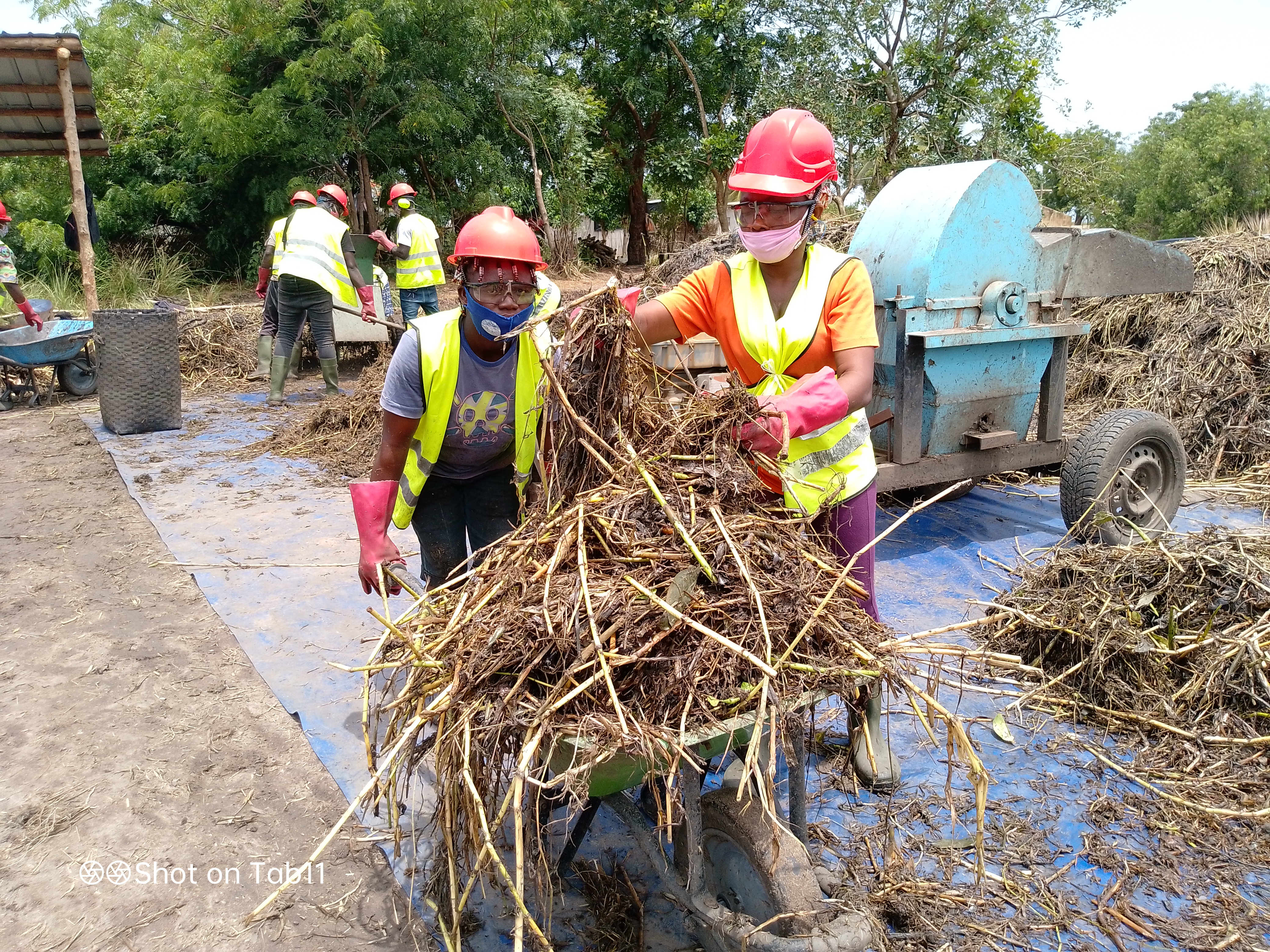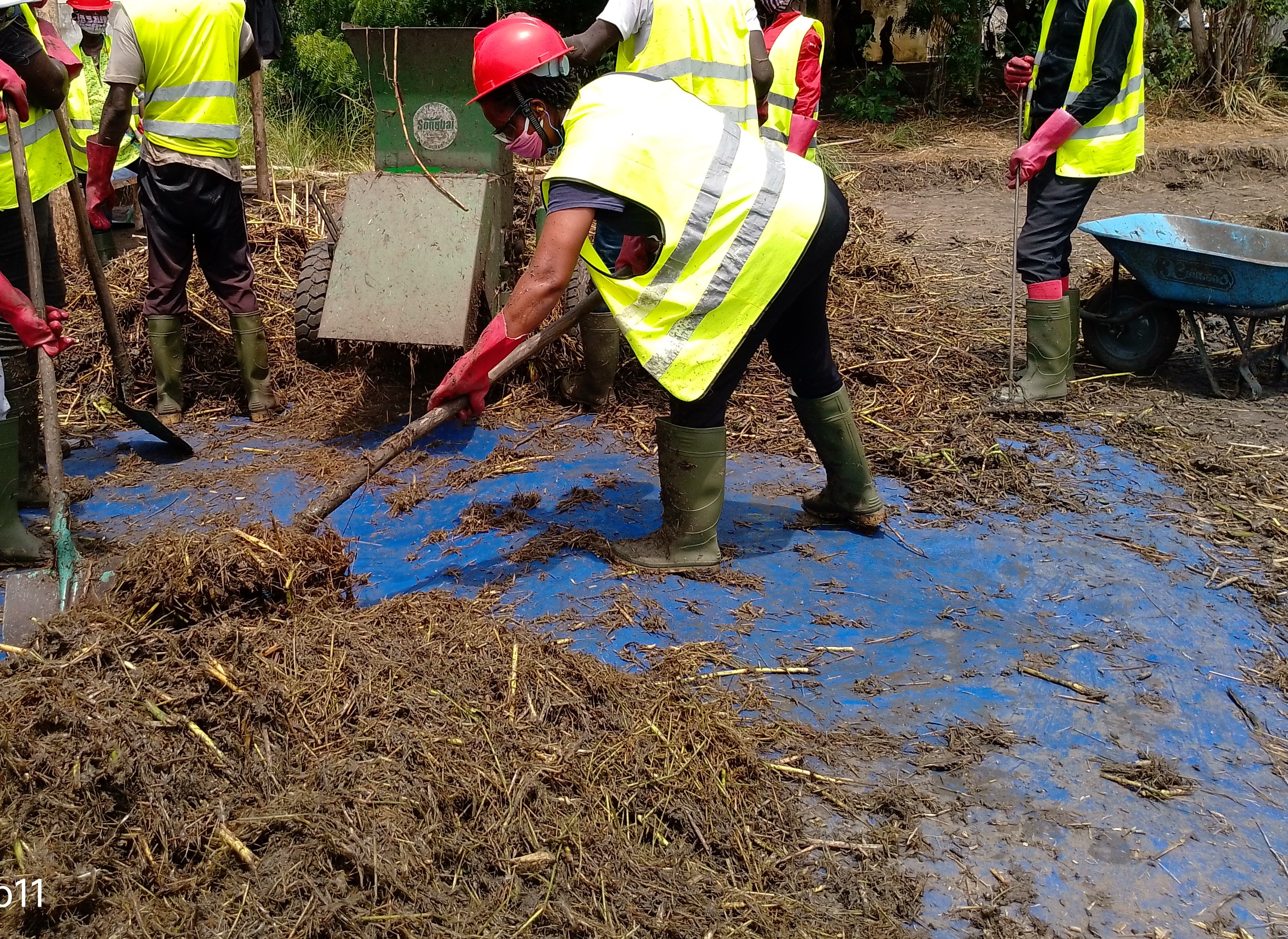News |
In Agbanakin, Restoring a Waterway — and Creating New Livelihoods
In Agbanakin, a riverside village in Benin’s Lacs 2 municipality, local communities are not only helping restore the Gbaga channel — they are finding new ways to turn this environmental effort into economic opportunity.
Abla Donsi, a young seamstress in her thirties, has emerged as one of the leading women engaged in the reuse of vegetation cleared from the channel as part of an ambitious dredging project. The works, carried out by the company TC Marines Zilla Group, are part of a broader effort to restore the channel’s ecological health and improve transport links between riverside communities.
Since the start of the mechanical dredging operations, 291 local residents — many of them women — have been recruited to support the effort. Every morning, Abla joins her colleagues at the vegetation storage site, equipped with protective gear and tools. Together, they collect and dry the shredded plants, transforming them into compost for agricultural use.
For Abla, the benefits are both personal and collective.
"We are children of Agbanakin. We understand the importance of this work — bringing life back to our waterway and making it possible for us to cross and visit family is a huge relief," she says. "I’ve been working here for three weeks, and by the end of the month, I’ll be able to support my family. Once the work is completed, fishing will resume. I’m grateful to the government for this opportunity."
Abla also sees her role as part of a shift in local perceptions about women’s work.
"There’s no such thing as 'men’s work' anymore," she says firmly. "My colleagues and I are involved in every step of the process. And our supervisors encourage us — it shows we’re doing a good job."

The project is being closely monitored to ensure environmental, social, and gender safeguards are respected.
"All workers are equipped with protective gear, provided with meals on site, and covered by insurance," explains Dr. Kossi Adjonou, from the project’s monitoring team. "The local workforce has been prioritized, gender equality is respected, and communities have access to clean drinking water."
As work continues along the Gbaga channel, the project is not only restoring an essential waterway but also empowering local residents — especially women — to be part of the solution
